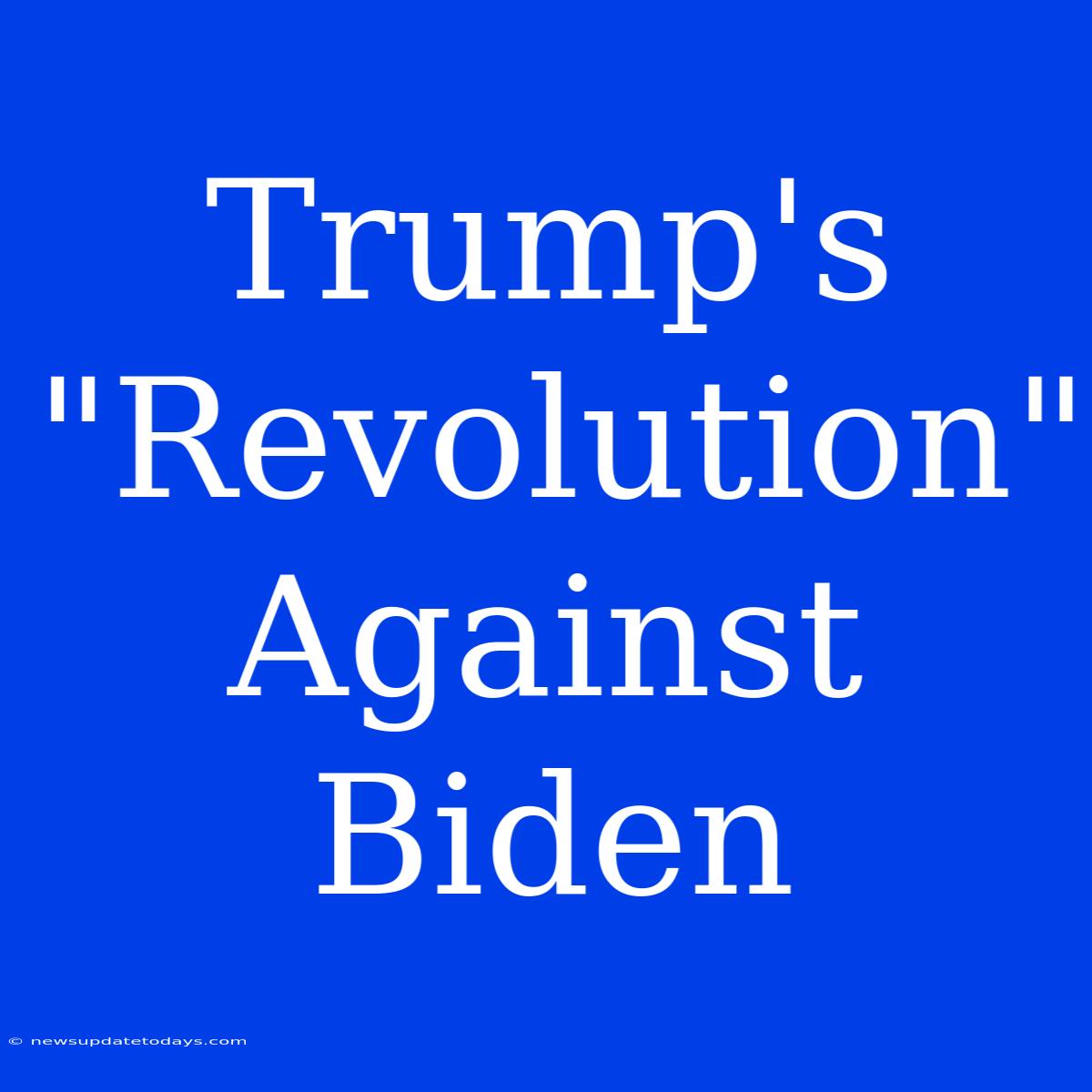Trump's "Revolution": A Contested Claim in the 2024 Race
Donald Trump's 2024 presidential campaign is framed as a "revolution" against the Biden administration. But what does this "revolution" truly entail, and how realistic are its promises? This article delves into the key aspects of Trump's platform, examining its promises and the potential challenges it faces.
The Pillars of Trump's "Revolution"
Trump's campaign rhetoric centers around several core themes, presented as revolutionary changes:
1. Economic Nationalism and "America First": This involves promises of renegotiating trade deals, imposing tariffs, and prioritizing domestic manufacturing. The claim is that this approach will revitalize the American economy and create jobs. However, critics argue this strategy could lead to trade wars and higher prices for consumers.
2. Stricter Immigration Policies: Trump's "revolution" includes a renewed focus on border security, stricter immigration enforcement, and a potential return to his "zero tolerance" immigration policies. Supporters see this as crucial for national security, while opponents express concerns about human rights violations and the potential for economic disruption.
3. Law and Order Agenda: A key component of Trump's message is a tough-on-crime approach, focusing on increased law enforcement funding and stricter sentencing. He frames this as essential for restoring public safety and reducing crime rates. Conversely, critics argue this approach could disproportionately affect marginalized communities.
4. Energy Independence: Trump promises to reverse Biden's climate policies and prioritize fossil fuel production, claiming this is vital for energy independence and economic prosperity. The counterargument highlights the environmental consequences of such policies and the urgency of transitioning to renewable energy sources.
Challenges Facing Trump's "Revolution"
Despite Trump's forceful rhetoric, several significant obstacles could hinder his "revolution":
-
Political Polarization: The deep political divisions within the US make significant policy changes extremely difficult. Even if Trump wins, enacting his ambitious agenda will require overcoming substantial opposition in Congress and from the public.
-
Economic Uncertainty: Global economic conditions are unpredictable, and any economic policy is subject to unforeseen consequences. The success or failure of Trump's economic nationalism will heavily depend on external factors beyond his control.
-
Legal Challenges: Trump faces ongoing legal battles, which could significantly impact his campaign and his ability to govern effectively should he win.
-
Evolving Public Opinion: Public opinion on many of Trump's key policy positions has shifted since his previous presidency. His ability to mobilize support for his "revolution" will depend on successfully convincing voters to embrace his agenda once again.
Conclusion: Revolution or Rehash?
Whether Trump's campaign represents a genuine "revolution" or a rehash of his previous administration's policies is a matter of ongoing debate. His promises resonate with a segment of the electorate, while his critics remain skeptical of his ability to deliver on them. The success or failure of his "revolution" will ultimately be determined by the voters in the 2024 election and the broader political and economic landscape. The upcoming months will undoubtedly offer further insights into the viability and potential impact of Trump's ambitious goals.

